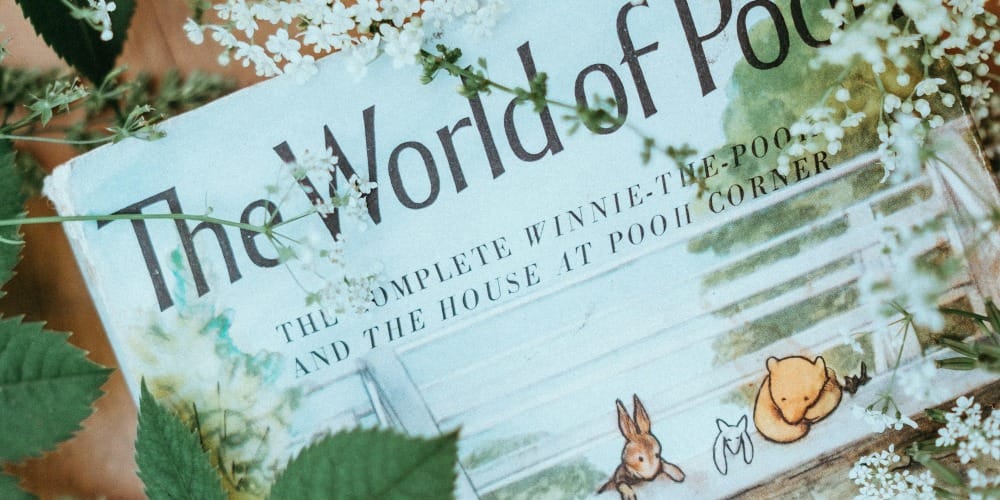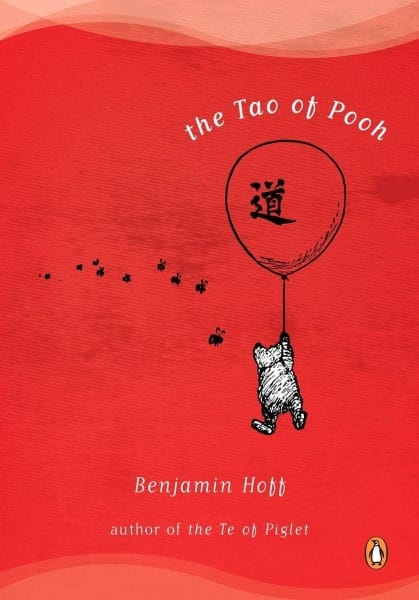Book Notes: The Tao of Pooh by Benjamin Hoff

🚀 The Book in 3 Sentences
- Taoist wisdom is seen in Winnie the Pooh; Pooh is a Taoist master because he just is.
- The core principles of Taoism are explained using examples from Winnie the Pooh.
- We can become in tune with the Way by emulating Pooh’s simplicity.
🎨 Impressions
Non-fiction | Life Advice | Philosophy
This book reminded me how cluttered my mind is and caused me to reflect on my current mental state. It highlighted the difference between knowledge and wisdom, and gave many relatable examples on how to be more in tune to my Inner Nature.
👤Who Should Read It?
I think this should be required reading for everyone in the world. The author brought a major Eastern philosophy together with a classic Western literature - the symbolism of bringing the world together in that way cannot be overlooked.
This book is truly for everyone - if you are mostly happy with your life but still have moments of discontent, this is for you. If you are not happy with your life, this book is for you. If you are practicing Taoism, this book is still for you.
☘️ How the Book Changed Me
- It made me more aware of how being an intellectual is not necessarily the same thing as being wise.
- It made me more reflective on how I engage with what is going on around me, and showed me how to let the Inner Nature of things take its course.
- It made me more content with my life and career, which led to greater confidence in myself.
- Engaging in more moments of Doing Nothing has led to a quieter mind and greater creative output in my hobbies which I have been trying to do for years.
✍️ My Top 3 Quotes
- When you discard arrogance, complexity, and a few other things that get in the way, sooner or later you will discover that simple, childlike, and mysterious secret known to those of the Uncarved Block: Life is Fun.
- Once you face and understand your limitations, you can work with them, instead of having them work against you and get in your way, which is what they do when you ignore them, whether you realize it or not.
- Cleverness, as usual, takes all the credit it possibly can, but it’s not the Clever Mind that’s responsible when things work out. It’s the mind that sees what’s in front of it, and follows the nature of things.
📒 Summary + Notes
Book length: 158 pages | Time to read: 3 hours
This was a short book, but I read just one chapter a day because each part was so impactful. I wanted to take time to reflect on what I had just read. While total reading time was around 3 hours, I took a week to complete it.
The author sets the scene of the book as him in the process of writing this very book, while consulting Pooh and other characters from that world. There is a conversational tone as the author and Pooh go back and forth while learning about the Tao principles. This allows for a meta-understanding of the topic as we are, in a way, put in Pooh’s mindset as he learns along with us.
While the entire book is filled with invaluable pieces of wisdom, I was most impacted by two chapters: Cottleston Pie and Bisy Backson.
Cottleston Pie
In this chapter, the song Cottleston Pie is discussed, which Pooh sang in Winnie-the-Pooh. I was most impacted by the first verse:
Cottleston, Cottleston, Cottleston Pie, A fly can’t bird, but a bird can fly. Ask me a riddle and I reply: Cottleston, Cottleston, Cottleston Pie.
We all understand that a fly can’t bird while a bird can fly - yet so many of us don’t realize this same reality in our own lives. The author goes on to say:
You’d be surprised how many people violate this simple principle every day of their lives and try to fit square pegs into round holes, ignoring the clear reality that Things Are As They Are.
We are then pulled into the writings of Chuang-tse where someone complains to Chuang-tse that a tree on their land is too crooked, tough, and ugly to be used by carpenters or builders. Chuang-tse replies that the person is not seeing the value of the tree:
You could make use of the shade it provides, rest under its sheltering branches, and stroll beneath it, admiring its character and appearance…It is useless to you only because you want to make it into something else and do not use it in its proper way.
Everything has a place and function - even people, though we often do not realize it. We can be in the wrong job, career, relationship, etc. When you understand and respect your own Inner Nature, you know exactly where you are supposed to be - and where you don’t need to be.
Bisy Backson
The title of this chapter had me thinking of bison - perhaps there was another lesser known character in Winne-the-Pooh? As I read the title out loud more, I began to see the Bisy Backson was really an ironic portmanteau of “Busy - Back Soon”.
I find this ironic because we are even so busy as to create this blended phrase that is incorrect - an accurate reflection of how our busy lives create more misunderstandings and messes. I, myself, am a Bisy Backson, though I am now aware of it and will work to remedy that. The author describes them as:
The Bisy Backson is almost desperately active…The Athletic sort of Backsons - one of the many common varieties - are concerned with physical fitness. But for some reason, they see it as something that has to be pounded in from the outside, rather than built up from the inside. Therefore, they confuse exercise with work. They work when they work, work when they play.
Not all Backsons are the Athletic sort with lists of Physical Activities they do; some are also the Going sort, always going somewhere - anywhere but where they are. What is the motivation for always Going Somewhere and Doing Something?
For a Reward, perhaps. Our Bisy Backson religions, sciences, and business ethics have tried their hardest to convince us that there is a Great Reward waiting for us somewhere, and that what we have to do is spend our lives working like lunatics to catch up with it. Whether it’s up in the sky, behind the next molecule, or in the executive suite, it’s somehow always farther along than we are.
I had to put the book down for a minute after reading those last lines. I felt it in my bones - I felt seen. Why is it that I am never able to say I am content with something? Now, while I do think it is good to have goals and work towards achieving those goals, I am always somehow less satisfied when the goals are complete than I thought I would be. After reading this chapter, I think I understand - I am not so good at appreciating the journey and subsequent goal accomplishment. Immediately, I begin to think “what’s next?” without taking time to enjoy what I have done and where I currently am.
The author traces the first Bisy Backsons in America to the Puritans, who never relaxed and lived in harmony with their surroundings. Puritans observed the Native Americans’ peaceful and quiet life as alien and saw it as something to eliminate because it stood in the way of the Great Reward.
From the Miserable Puritan came the Restless Pioneer, and from them, the Lonely Cowboy, always riding off into the sunset, looking for something just down the trail. From this rootless, dissatisfied ancestry has come the Bisy Backson, who, like the ancestors, had never really felt at home, at peace, with this Friendly Land.
Shaking off the ingrained Bisy Backson culture will be difficult. Consider the English saying “Time is money” - everyone is always trying to save time to do This and That. But, what I am starting to learn, is that I can’t save time, I can only spend it. Thus, I must work on spending it wisely - or perhaps stop trying to save time and I will find I suddenly have lots of time.
